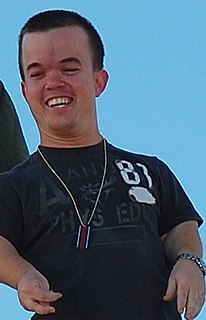A Quote by Elif Safak
It is tiring to be Turkish. The country is badly polarised, bitterly politicized. Every writer, journalist, poet knows that because of an article, a novel, an interview, a poem or a tweet you can be sued, put on trial, even arrested. Self-censorship is widespread.
Related Quotes
It's good for a writer to come from journalism because it gives you the tools. A journalist knows that he or she can lose the reader in six lines, so try to keep the attention of the reader. Also, you learn to research, and to conduct an interview - to extract from the person whatever you need from that person.
Everyone's going to have a racist tweet, a homophobic tweet, a xenophobic tweet, a misogynist tweet. Everyone's going to have a tweet or a post or something that's not going to be ideal, and because of that, you can't really throw stones too hard at the people that do, because if we examined your life in every way, shape, or form, went through every single post with a fine-toothed comb and under that microscope, would it come out all sunshine and lollipops?
A true poet is more than just a man who can write a poem with a pen. A true poet writes poetry with his very life. A true poet doesn't use poetic devices to con the heart of a woman but uses the beauty of all that is poetic to serve, cherish, and express love to the heart of a woman. Just as a true warrior is not a conqueror of femininity but a protector of femininity, a true poet is not just a wooer of a woman's heart but one who knows how to nurture and plant love in a woman's heart. Simply put, a true poet is a man who knows how to be intimate with a lover - first and foremost with Christ.
I know that in a poem, even when the speaker is speaking from the poet's experience, there's always something that's borrowed, some authority that sits outside of the poet that the poem has claimed. There's a dramatic pitch that makes the speaker capable of saying something more courageous or stranger or simply other than what the poet would be able to say.
There are four characteristics which brand a country unmistakably as a dictatorship: one-party rule, executions without trial or with a mock trial for political offenses, the nationalization or expropriation of private property, and censorship. A country guilty of these outrages forfeits any moral prerogatives, any claim to national rights or sovereignty, and becomes an outlaw.
I do not suppose that anyone not a poet can realize the agony of creating a poem. Every nerve, even every muscle, seems strained to the breaking point. The poem will not be denied; to refuse to write it would be a greater torture. It tears its way out of the brain, splintering and breaking its passage, and leaves that organ in the state of a jelly-fish when the task is done.





































